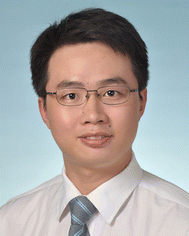Introduction to 1D/2D materials for energy, medicine and devices
Yu
Chen
 a,
Gemma-Louise
Davies
a,
Gemma-Louise
Davies
 *b,
Anders
Hagfeldt
*b,
Anders
Hagfeldt
 c and
Nicholas
Kotov
c and
Nicholas
Kotov
 d
d
aShanghai University, China. E-mail: chenyu@mail.sic.ac.cn
bUniversity College London, UK. E-mail: gemma-louise.davies@ucl.ac.uk
cUppsala University, Sweden. E-mail: anders.hagfeldt@uu.se
dUniversity of Michigan, USA. E-mail: kotov@umich.edu
 Yu Chen |
 Gemma-Louise Davies |
 Anders Hagfeldt |
 Nicholas Kotov |
The field of nanotechnology has seen exponential growth since the end of the 20th century, with significant advances in technology and practice in the production and characterisation of nanomaterials. Whilst much of this initially focussed on 0D materials, the exploration of 1D and 2D nanostructures has come to the forefront of research in the past two decades, as details about their unique and intriguing properties have emerged. Carbon nanotubes and graphene are, of course, the flagship examples of these, with their impressive range of characteristics and applications, seemingly across all sectors. Within this themed collection across the Journal of Materials Chemistry A, B and C, we sought to provide a compilation detailing recent progress and cutting-edge new developments in 1D and 2D structured nanomaterials for applications across energy and sustainability, biology and medicine and optical, magnetic and electronic devices.
This themed collection entitled “1D/2D materials for energy, medicine and devices” has proven popular amongst our authors, and we are delighted to have a strong collection of excellent research articles and reviews within the collection.
With the breadth of work published, we believe this highly anticipated collection will prove inspirational for the next generation of research in this popular area, and we look forward to being a part of future developments!
| This journal is © The Royal Society of Chemistry 2023 |
